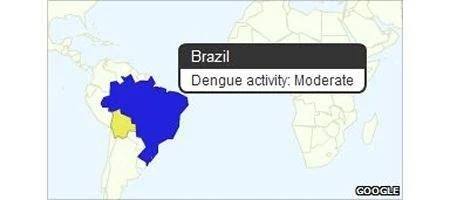After discovering that search queries about flu could predict outbreaks effectively, Google’s launched a similar tool to help health officials respond more quickly to outbreaks of dengue.

Google – which developed the tool together with Children’s Hospital Boston – says that when compared against available national surveillance data, its web-based search data works well for early detection and monitoring of dengue outbreaks.
“By using search data, we’re tapping into a freely-available, instant dataset that can be gathered, analyzed, and released much more quickly and at much lower effort and cost than through traditional national surveillance and reporting programs,” says the hospital’s John Brownstein.
“The kind of information the tool provides can help direct public health officials target interventions aimed at mosquito control and disease prevention, such as education campaigns, as early as possible. This information can act as a supplement to traditional surveillance and reporting systems and give local authorities a leg up on an outbreak.”
Dengue only entered our species in the last 100 to 800 years, but now infects about 500 people every year. The mosquito-borne disease endemic to countries in Asia, Africa, the Pacific and the Americas, and is often fatal, expecially in the young and the elderly.
The technique wouldn’t work so well with all diseases, unfortunately.
“Dengue affects large numbers of people, but because it is endemic in many countries, it is not a disease where search data would be affected by panic-induced searching or a lot of ‘noise’,” says Brownstein.






